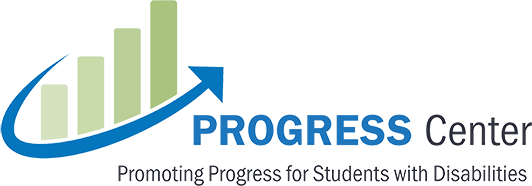How can educators accelerate learning and promote progress for students with disabilities as they return to school this fall? In this webinar, Drs. Daniel Maggin, Sarah Powell, Gena Nelson, and Kary Zarate highlight six high-leverage, evidence-based practices shown to support implementation of high-quality instructional programming for students with and at risk for disabilities regardless of their identified disability category or grade span. These practices were identified through an extensive, systematic meta-analysis.
This series of practice briefs highlight six evidence-based, high-leverage practices that research has shown support implementation of high-quality instructional programming for students with and at risk for disabilities regardless of their identified disability category or grade span. These practices were identified through an extensive, systematic meta-analysis* of the high-leverage practices for students with disabilities.
Teaching social behaviors provides opportunities for teachers to communicate and encourage students with disabilities to demonstrate behavioral expectations and communicate needs more effectively. Rather than a stand-alone curriculum, the teaching of social behaviors requires teachers to implement an instructional sequence that includes defining the target behavior, teaching the social skill, and supporting the student to demonstrate the behavior through modifications to the classroom.
When reviewing and intensifying instruction for students with disabilities, teachers should consider a three-phase cycle of plan, deliver, review and intensify individual, small-group, and whole-group instruction. Even though teachers may plan for and deliver high-quality instruction, some students with disabilities will continue to have difficulties with making progress toward academic and behavioral learning targets. Teachers should use data to monitor student progress and adapt instruction as necessary, using a process of intensifying instruction.
Cognitive and metacognitive strategies are important for the development of executive function skills, which, in turn, are crucial for learning academic and behavior skills. In the three-phase cycle for instruction, teachers can use several cognitive and metacognitive strategies to address challenges that students with disabilities have related to executive functioning.
When planning instruction for students with disabilities, teachers need to consider elements of explicit instruction that will provide access to the general education curriculum and also meet the unique needs of students with disabilities across a variety of outcome areas. Teachers should consider a three-phase cycle of plan, deliver, review and intensify individual, small-group, and whole-group instruction.
When delivering instruction for students with disabilities, teachers should consider a three-phase cycle of plan, deliver, review and intensify individual, small-group, and whole-group instruction. This brief focuses on delivering instruction using a model of explicit instruction. Explicit instruction is a combination of modeling and practice that research has shown to benefit the teaching of reading, writing, and mathematics and has been found to be especially beneficial when teaching students with disabilities.
This course is intended to explain the Individuals with Disabilities Education Act (IDEA) requirements for measurable annual goals and the critical role of measurable annual goals in the development of a high-quality individualized education program (IEP). The course describes the three essential elements of a measurable annual goal, identifies tips for developing measurable annual goals that promote progress, and shares resources for learning more. This course is part of a larger series on IEPs. Additional modules will be added over time.
